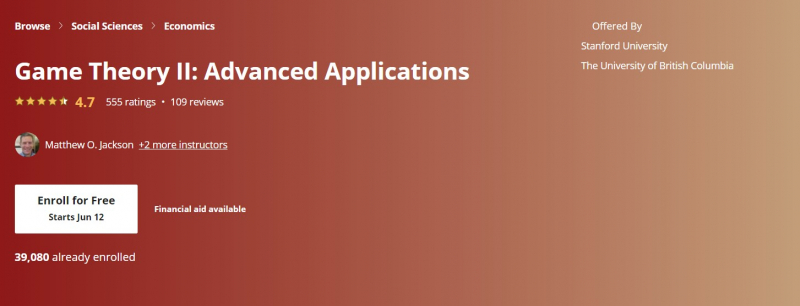Game Theory II: Advanced Applications
Game theory, made popular by films such as "A Beautiful Mind," is the mathematical description of strategic interaction among rational (and irrational) actors. This advanced course examines how to design interactions between actors in order to produce desirable social outcomes throughout four weeks of lectures. The course covers three major topics: social choice theory (collective decision making and voting systems), mechanism design, and auctions.
In the first week, they look at the difficulty of aggregating diverse agents' preferences, as well as voting procedures and the difficulties associated with collective decision making. They cover some of the most significant theoretical conclusions in the field, including Arrow's Theorem, which establishes that no voting system is "perfect," as well as the Gibbard-Satterthwaite and Muller-Satterthwaite Theorems. They then look at how to make collective judgments when actors are self-interested and can strategically misreport their preferences. They define "mechanism design," a comprehensive framework for engineering interactions between self-interested agents, and provide some fundamental theoretical findings. Their third week focuses on the topic of developing mechanisms to optimize aggregate pleasure across agents and introduces the strong Vickrey-Clarke-Groves family of mechanisms. The course concludes with a fourth week that looks at the challenge of allocating finite resources among self-interested actors and introduces them to auction theory.
This course offers
- Flexible deadlines
- Shareable Certificate
- 100% online
- Advanced Level
- It takes approximately 17 hours to complete.
- Subtitles: French, Portuguese (European), Chinese (Simplified), Russian, English, Spanish
Coursera rating: 4.7/5
Enroll here: https://www.coursera.org/learn/game-theory-2










